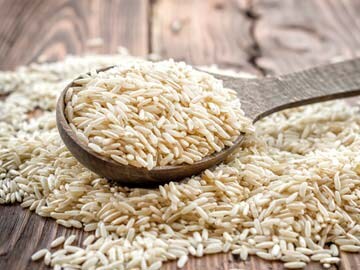
Representational image
New Delhi:
India on Wednesday clarified that its decision not to ratify WTO's Trade Facilitation Agreement (TFA) is aimed at ensuring that the country's efforts to ensure food security remain consistent with its international obligations.
"The stand taken by India is aimed at achieving a permanent solution on the issue of public stockholding for food security purposes so that the country's efforts to ensure food security remain consistent with its international obligations," Commerce Minister Nirmala Sitharaman told the Rajya Sabha in a written reply.
India's stand is that without such a permanent solution, public stockholding measures in developing countries will be hampered by the current ceiling on domestic support at 10 percent of the value of production. Such support is considered as a trade-distorting subsidy to farmers under existing WTO rules.
During the Ninth Ministerial Conference of the WTO in Bali, Indonesia in December 2013, WTO members, including India, agreed on a Bali Package comprising an agreement on Trade Facilitation and on issues relating to agriculture and development.
"While there was progress on the Trade Facilitation Agreement, other decisions including one on public stockholding for food security purposes and other development issues were sidelined," Ms Sitharaman said.
Since its decision not to ratify the TFA, India has followed up with suggestions on how to ensure time-bound delivery of an outcome on public stockholding for food security, she added.
"The stand taken by India is aimed at achieving a permanent solution on the issue of public stockholding for food security purposes so that the country's efforts to ensure food security remain consistent with its international obligations," Commerce Minister Nirmala Sitharaman told the Rajya Sabha in a written reply.
India's stand is that without such a permanent solution, public stockholding measures in developing countries will be hampered by the current ceiling on domestic support at 10 percent of the value of production. Such support is considered as a trade-distorting subsidy to farmers under existing WTO rules.
During the Ninth Ministerial Conference of the WTO in Bali, Indonesia in December 2013, WTO members, including India, agreed on a Bali Package comprising an agreement on Trade Facilitation and on issues relating to agriculture and development.
"While there was progress on the Trade Facilitation Agreement, other decisions including one on public stockholding for food security purposes and other development issues were sidelined," Ms Sitharaman said.
Since its decision not to ratify the TFA, India has followed up with suggestions on how to ensure time-bound delivery of an outcome on public stockholding for food security, she added.
Track Latest News Live on NDTV.com and get news updates from India and around the world

